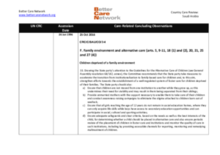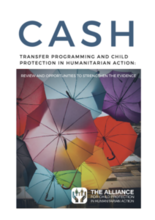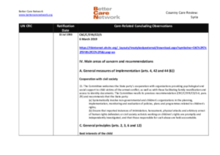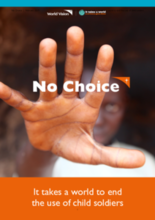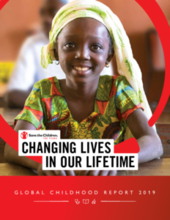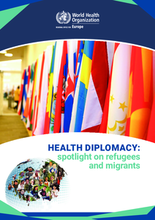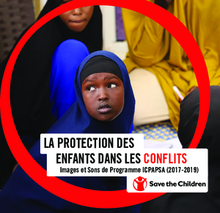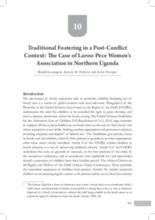Displaying 241 - 250 of 532
This country care review includes the care-related Concluding Observations adopted by the Committee on the Rights of the Child and the Committee on the Rights of Persons with Disabilities.
This report summarizes the evidence for cash transfer programming and child protection in humanitarian contexts and recommends areas for action and further research.
This country care review includes the care-related Concluding Observations adopted by the Committee on the Rights of the Child. The Committee's recommendations on the issues relevant to children's care are highlighted, as well as other care-related concluding observations, ratification dates, and links to the Universal Periodic Review and Hague Intercountry Adoption Country Profile.
World Vision commissioned the research, 'No Choice', to better understand children associated with armed groups.
This study highlights the plight of children in state orphanages during conditions of war and its aftermath, in order to explore how state narratives trap children between contested notions of the best interests of the child, national belonging, and familial rights.
This study employed a strict textual analysis of the relevant literature on the use of child soldiers in the Democratic Republic of Congo, South Sudan, and the Central African Republic to understand the implications of this on regional security.
In commemoration of its founding 100 years ago, Save the Children is releasing its third annual Global Childhood Report to celebrate progress for children.
This book is part of the WHO Regional Office for Europe’s commitment to work for the health of refugees and migrants. It showcases good practices by which governments, non-state actors and international and nongovernmental organizations attempt to address the complexity of migration, by strengthening health system responsiveness to refugee and migrant health matters, and by coordinating and developing foreign policy solutions to improve health at the global, regional, country and local levels.
Through this photobook, the PCIC (Protecting Children in Conflict) team highlights the milestones achieved for children in situations of conflict through the efforts of the programme, continue to inspire and provide the basis for the next steps towards the realisation of children’s rights.
This chapter from Social Work Practice in Africa: Indigenous and Innovative Approaches presents a traditional fostering model adopted by a group of women in Northern Uganda, analysing its potential for building resilience and for contributing to social capital and social development within the broad context of post-conflict situations.

